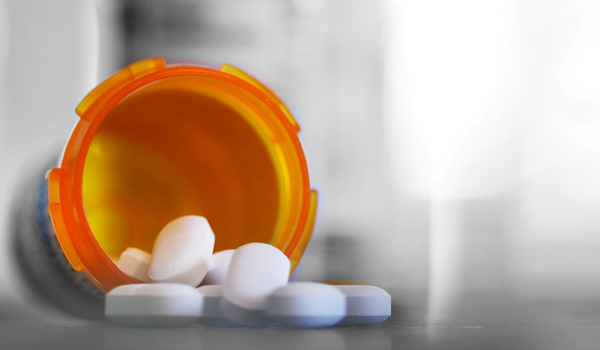Government bans 15 new synthetic opioids with tough penalties for possession
Fifteen additional synthetic opioids have been banned by the Government with anyone caught in possession facing up to seven years in jail, an unlimited fine or both.
The Home Office said placing these substances under “the strictest controls”, in line with fentanyl, aims to prevent drug-related deaths in the UK.
From Wednesday (March 20), the 15 synthetic opioids, including 14 nitazenes, will now controlled as Class A drugs under the Misuse of Drugs Act 1971, following advice from the Advisory Council on the Misuse of Drugs (ACMD).
Three stimulants, a synthetic cannabinoid receptor agonist (SCRA) and a benzodiazepine have also been banned.
“Many of these substances are highly addictive and incredibly dangerous and pose a higher risk of accidental overdose – a widespread problem in other countries,” said the Home Office.
“Placing them under the strictest controls is a clear message to anyone involved in production or supply of these drugs that they will face the full force of the law – including up to life in prison, an unlimited fine, or both.
“The Government’s priority is to engage with vulnerable people at risk of being sold these lethal drugs and diverting them towards treatment; however, those caught in possession of them could also face up to seven years imprisonment, an unlimited fine or both.”
Laws are being “future proofed” by introducing a generic definition of nitazenes, to capture any new drugs that emerge in future.
Home Secretary James Cleverly said: “We are highly alert to the threat from synthetic drugs and have been taking a range of preventative action, learning from experiences around the globe, to keep these vile drugs off our streets.
“Our plan is working – the overall quantities of synthetic opioids reaching the UK remain lower than other countries, but we are not complacent. Placing these toxic drugs under the strictest controls sends a clear message that the consequences for peddling them will be severe.”
Crime and Policing Minister Chris Philp added: “Synthetic opioids are significantly more toxic than heroin and have led to thousands of deaths overseas. We are determined to ensure these destructive and lethal drugs do not take hold in our communities in the UK.
“We have a strategy that is tackling the soulless criminal networks supplying these drugs and are building a world-class treatment system to turn lives around. We are enhancing our early warning system to ensure the right agencies can respond rapidly if these drugs are detected in communities.”
He said enhancing the surveillance and early warning system will improve the ability to track dangerous narcotics that reach the streets in real-time.
This was first outlined last week in Vienna at the UN’s annual Commission on Narcotic Drugs by the Crime and Policing Minister.
This will include state-of-the-art monitoring for the presence of synthetic drugs by analysing wastewater or recording spikes in overdoses in specific locations. These findings will be fed down to law enforcement and public health agencies, at national and local level, meaning rapid action can be taken in communities where they are detected.
At the conference, the Policing Minister met US Secretary of State Anthony Blinken where they pledged for both nations to work together to tackle the synthetic opioids threat, including agreeing the need for international action against nitazenes.
The UK is a long-standing funding contributor to the UN’s early warning advisory system and also joined the US-led Global Coalition to Address Synthetic Drugs.
Association of Police and Crime Commissioners addictions and substance misuse leads, David Sidwick and Joy Allen, said: “We welcome the announcement that the government is banning a further 15 synthetic opioids as part of its action to prevent drug deaths.
“That it is regularly having to react as new synthetics become available, is a warning signal of the pace at which life-threatening drugs are being synthesised and finding their way into our communities, causing serious health harms, risk of overdose and contributing to drug-related crime too.
“Police and crime commissioners (PCCs) are very aware of this emerging threat, and deeply saddened by continuing reports of deaths linked to these drugs.
“As senior responsible owners of our own local combating drugs partnerships, we are encouraging Public Health to raise awareness of the threat of these drugs and of the opportunity that naloxone presents to reverse the effects of opioid overdose thereby preventing avoidable drug deaths, including those associated with new synthetic drugs.
“We are also strongly advocating for the expansion of the use of naloxone across police forces but, as important as this is, it is a last-ditch intervention – we also need to be doing everything we can to prevent people using drugs in the first place and to get those who are using opioids into evidence-based treatment and on the road to recovery.
“That’s why PCCs are working closely with government and locally with partners to redouble our efforts to cut supply through robust enforcement and to improve the pathways from policing, probation, and prisons into the treatment services that can get people’s lives back on track and are one of the most effective ways we can cut crime and reduce reoffending.
The 15 new synthetic opioids now classified as Class A drugs under the Misuse of Drugs Act 1971 are: Metonitazene, Protonitazene, Isotonitazene, Butonitazene, Flunitazene, Metodesnitazene (metazene), Etodesnitazene (etazene), N-Pyrrolidino-etonitazene (Etonitazepyne), N-Piperidinyl-etonitazene (Etonitazepipne), N-Pyrrolidino Protonitazene, Ethyleneoxynitazene, N-Desethyl protonitazene, N-Desethylisotonitazene, N-Desethyl-etonitazene, and Brorphine.
Five other drugs have also been banned, including three stimulants – diphenidine, ephenidine and methoxyphenidine – which create similar effects to ketamine. These can cause complications such as seizures and liver failure and are now controlled as Class B drugs.
A synthetic cannabinoid receptor agonist (SCRA) called cumyl-PeGaClone has also been controlled as a Class B drug and a short-acting benzodiazepine drug named remimazolam is now Class C.


